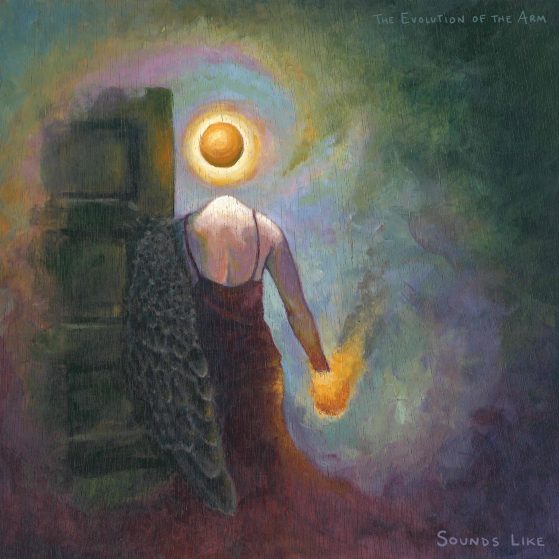The Evolution of the Arm, having materialized from Buffalo’s vibrant experimental music scene four years ago, now releases Sounds Like, its debut album of interdimensional, genre-transcending chamber music.
An unconventional quartet drawing on collective experience in classical, jazz, noise, theater music, and beyond, The Evolution of the Arm combines the subtle precision of notated concert music performance with the wild spontaneity of free improvisation, superimposing or moving seamlessly between these extremes in their original compositions. The instrumentation of oboe, piano, violin, and cello allows unique timbral amalgamations, while their heterodox approach to counterpoint and form manifest as a kind of doppelgänger of classical music—built from the flotsam and jetsam of Baroque intricacy and Romantic lyricism.
Sounds Like sees the band blurring boundaries between the tactile and the non-corporeal. From the gestural, quasi-metal opening riff of Starting Positions to Double Memory’s transcendent final chorale, the album charts trajectories through diaphanous string harmonics, crunchy piano clusters, and vertiginous oboe multiphonics. Album centerpiece Jackrabbit’s Palace is split across four movements, each featuring a different quartet member as an improvising soloist (pianist Michael McNeill, oboist Megan Kyle, cellist Katie Weissman, and violinist Evan Courtin respectively). Entr’actes break up this form with dreamily pensive string duo Fluffernutter, and the jerky starts-and-stops of pawns, a setting of the eponymous poem by Marina Blitshteyn.
“Sounds Like is the culmination of a chamber band’s idiosyncratic ensemble practice: a collective telepathy that integrates years of individual experiences in jazz clubs and orchestra pits, a multifarious mosaic built from the detritus of fractured musical identities. Its genre-wandering and riff-grifting imagines a parallel universe in which classical music is liberated from convention, where musicians freely explore the limitless expressive possibilities of their instruments and ipseities.
For complete credits and liner notes, download the Sounds Like booklet.
Praise for Sounds Like
“At times, Sounds Like has the rhythmic playfulness of a carousel ride, and then you discover you’re not going in circles but traversing a spikily warped landscape via some string-powered locomotive, while an oboe menaces from the air.
One is unsettled but happy about it.”
—M. Delmonico Connolly, author of Ronnie Spector in Rock Gomorrah
“Sounds Like dreamlike molten liquid cascading past cerebral synapses towards playful emotions of temporal interconnectivity, including slow motion images as realized vibrations upon the tympanic membrane while a cat’s purr harmonizes with the vintage stereo speakers and the scent of quality cigars through the open window from the neighbor’s veranda, evoking deja vu of lives not yet past.”
—Kelly Rossum, international trumpet artist, improvisor and composer

